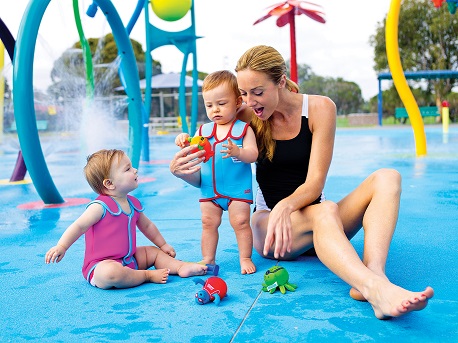
Zoggs Tips: Children's safety in and around the pool this summer!
Around the world, hundreds of children drown every year in and around water. Addressing water safety with your child is vital whether your child can swim or not. It’s vital that parents and guardians are aware of Children’s Safety in and around the Pool this Summer. The Zoggs team share their top tips for staying safe this summer...
Water safety ultimately is the responsibility of the parent, and we cannot emphasise this enough. When at a swimming pool, or near water never, ever turn your back on your child – not for a phone call, a book or when distracted by a friend - even if they can swim they still need to be supervised at all times.
When children go to a pool there are typically two differing experiences. One where the child doesn’t like the pool and is terrified to go near or close to it and one where the child loves the water and is excited by being in the pool. Both need equal amount of supervision and attention.
We find that most adults relax more if their child can swim, sometimes to the point that their attention is not as focused as it should be. As a result, we have heard of and witnessed countless occasions where the child gets out of their depth, gets tired, swallows water and then panic begins to set in. Yet, these have been confident and able children, demonstrating that sometimes confident swimmers don’t always follow the safety rules stated by the swimming pool.
Our 5 tips for Children’s safety in and around the pool this summer are:
1) Never leave your child unattended. Supervision is always necessary no matter the age.
2) If you are in the pool with your child, make sure you are comfortable and not out of your depth, making sure your child is within arms reach at all times.
3) Use float suits, floats or Zoodles to provide support in the pool. As your child gains confidence there are toys and suits that are able to support not only your child’s development but also their safety. Remember these are not a life saving devices and still require your supervision.
4) Talk to your child about what to do if they get tired or out of breath. Tell them to slow down their out breath under the water (blow bubbles out slowly) and make sure they take their time when they breathe in. Too many children in this situation just snatch a quick breath and go again which means they aren’t necessarily getting enough air. Talk about pool rules with your child and why you do and don’t do things in and around the pool.
5) Breaks, Perhaps self explanatory, but it is important to have breaks, particularly out of the sun. The same applies to the pool. Don’t allow your child to become over tired where they struggle to do something that they can normally naturally do. Panic can sometimes result on these occasions.













